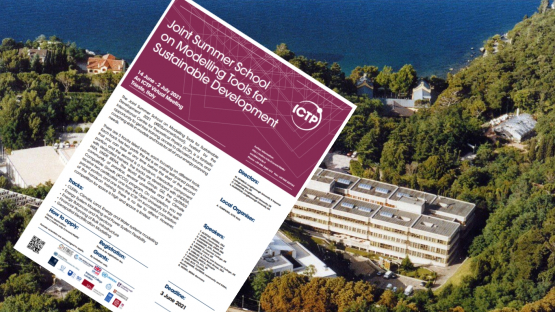Over 100 participants from 34 Member States took part in summer school on energy planning and modelling, a crucial skill that helps countries identify the best mix of energy sources to fit their needs. The Joint Summer School on Modelling Tools for Sustainable Development, co-organized by the IAEA and hosted by the International Centre for Theoretical Physics (ICTP), took place over two weeks in June.
The training materials were developed by the IAEA, UNDESA, UNDP, IRENA, the World Bank Group, Imperial College London, University of Oxford, Loughborough University, University of Cambridge, KTH Royal Institute of Technology, and Simon Fraser University. Open University, the OpTIMUS community of practice, the German International Development Agency, UK Foreign Commonwealth and Development Office, and the Climate Compatible Growth programme also made key contributions to the school programme.
“These types of partnerships are essential to establishing a more harmonized approach to capacity building efforts in energy planning,” said Wei Huang, Director of the IAEA Nuclear Energy Planning, Information and Knowledge Management Division. “All possible technological options should be considered to effectively address growing energy demand and climate challenges. Energy planning plays an important role in evaluating all energy options to meet the objectives of sustainable development and net zero transition.”
The IAEA led two out of the five training tracks featured in the school. The Energy Balances and Projections track introduced energy systems demand analysis and energy balances using the IAEA’s tools Model for Analysis of Energy Demand (MAED) and Energy Balance Studio (EBS). The track on Financial Planning of Bulk Infrastructure provided basic knowledge on financial theory, how financing is done in the power sector, and how to carry out financial analysis of power projects using Financial Analysis of Electric Sector Expansion Plans (FINPLAN), another of the Agency’s energy planning tools. The school also offered a track on Climate, Land, Energy and Water (CLEWs) Systems Modelling, Energy Modelling and Power System Flexibility, and Spatial Electrification Modelling. Each track consisted of an online self-paced segment followed by a hands-on, interactive component with dedicated trainers.
The school offered training, discussion forums, and hands-on exercises. But course participants also presented a poster and policy note featuring the case study they had developed as part of the training, and participated in a high-level dialogue and a round table discussion with experts from the IAEA and collaborating institutions as well as leading members of the energy modelling community.
“The Summer School provided much needed expertise in energy planning to developing countries,” said Jafaru Egieya, Principal Scientific Officer in the Nigeria Atomic Energy Commission. “For example, using the FINPLAN tool helped me to gain insights into financing of nuclear energy projects for Nigeria’s electricity system, and my work is contributing to the country’s Integrated Work Plan developed with the Agency.”
The school was amongst the ICTP’s top 10 trainings in terms of the number of applicants. Building on the synergies established through this training, discussions are underway on establishing region specific versions of the school in collaboration with local academic institutions, including one in Africa.
From 15 to 19 November 2021, the IAEA will be conducting the Joint ICTP-IAEA College on the Evaluation of Cost Effective Energy Options as Nationally Determined Contributions for Climate Change Mitigation. Applications are expected to open in mid-September. More information on the virtual college will be posted closer to the event.
MAED, EBS, and FINPLAN are part of the IAEA’s comprehensive set of tools and methodologies for integrated energy planning for sustainable development. The tools and methodologies, as well as training on how to use them, are available to Member States upon request, including through the IAEA technical cooperation programme. For further information, please contact: PESS.Contact-Point@iaea.org.






